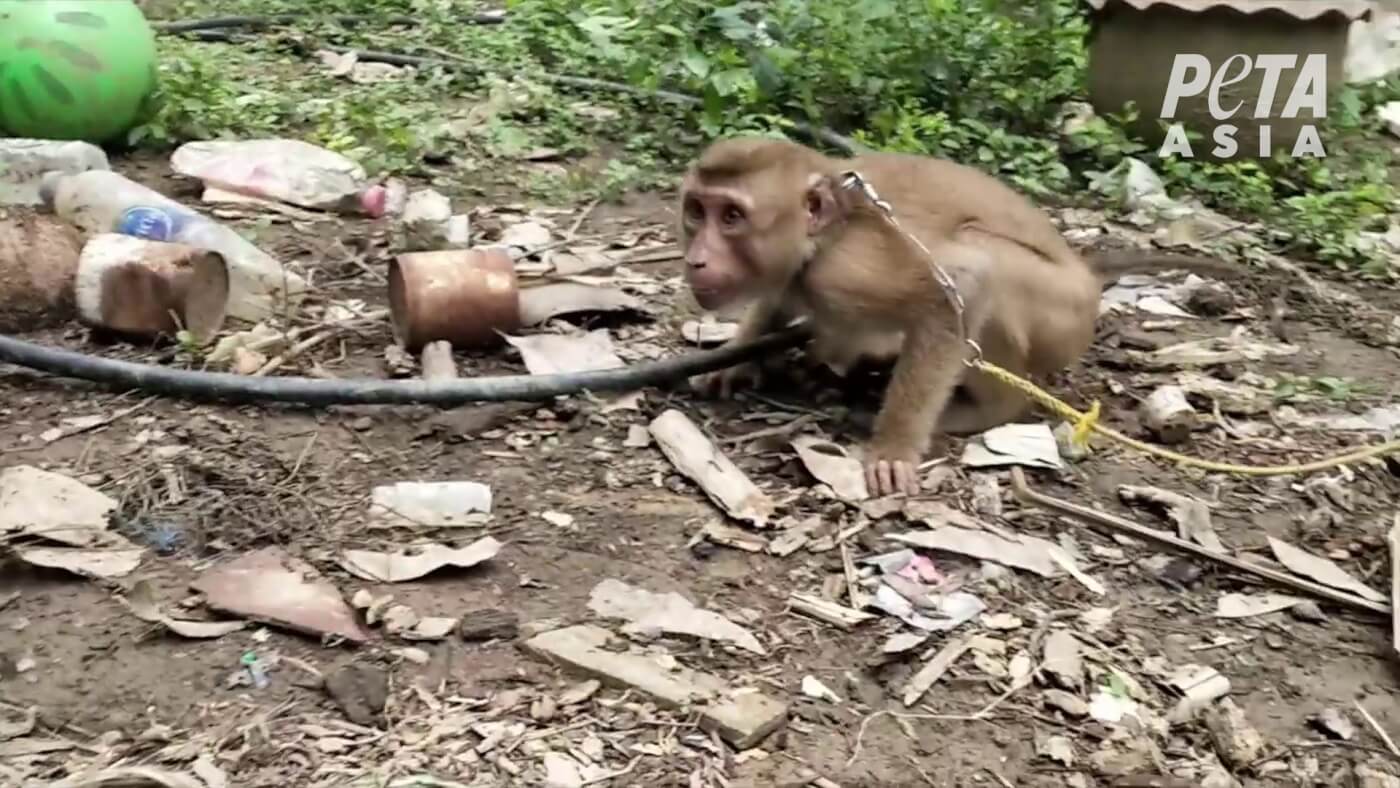Monkeys Chained, Abused for Coconut Milk
Were Monkeys Forced to Pick Your Coconuts?
Many kind people choose coconut milk instead of cow’s milk because they don’t want to support cruelty to animals. But a disturbing PETA Asia investigation reveals that terrified young monkeys in Thailand are kept chained, abusively trained, and forced to climb trees to pick coconuts that are used to make coconut milk, meat, flour, oil, and other products.
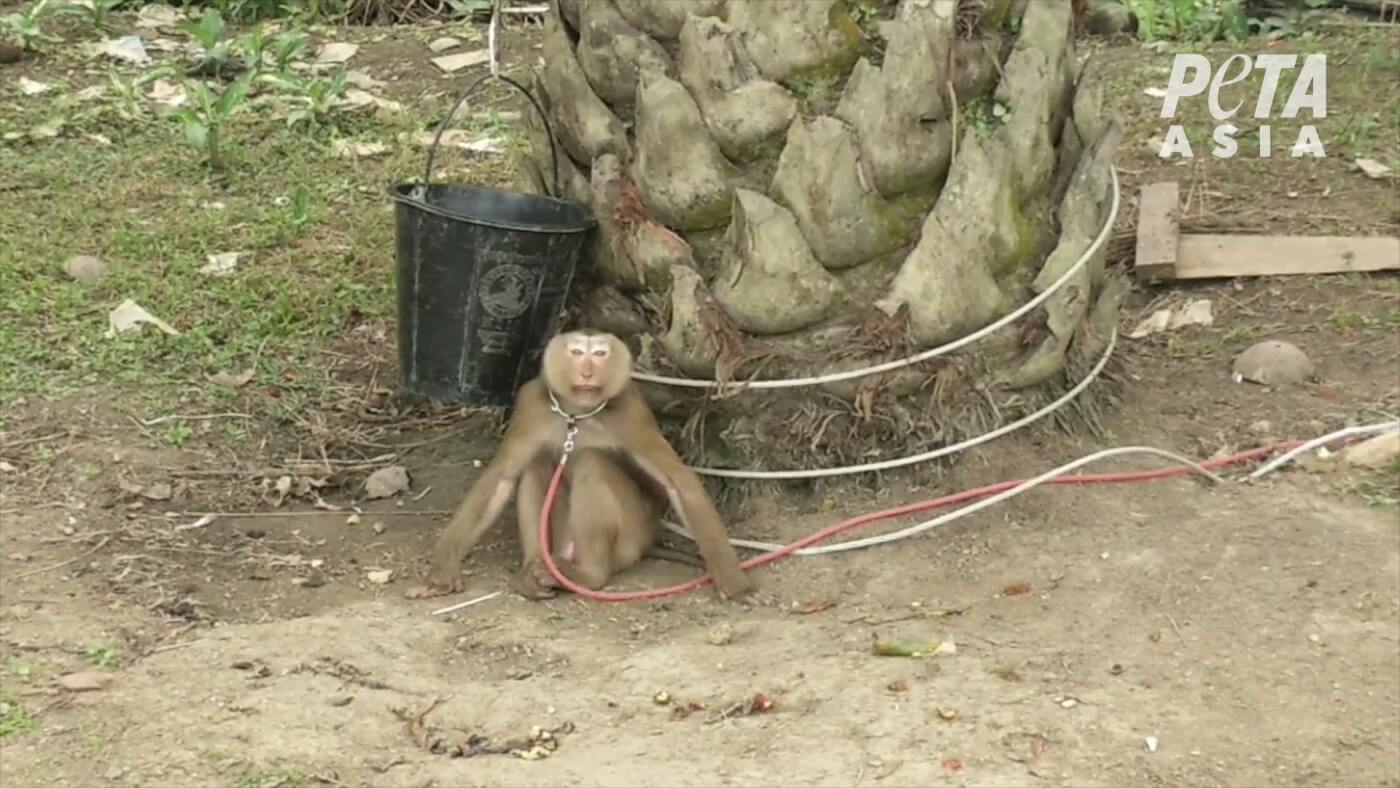
Chained and Driven Insane
In 2019, PETA Asia investigators visited eight farms where monkeys are forced to pick coconuts—including those for one of Thailand’s major coconut milk producers, Chaokoh—as well as several monkey-training facilities and a coconut-picking competition. At each one, they documented that these sensitive animals were abused and exploited. Since being alerted to this situation, Chaokoh and the Thai government have failed to take meaningful action to end the use of forced monkey labor. They are relying on a misleading and inadequate audit system instead of going directly to inspect the farms themselves. This allows them to remain willfully ignorant of the extent of forced monkey labor in their coconut supply chain.
In 2020, a new PETA Asia investigation found that monkeys are still being used at many farms and that monkey schools are still in operation and coconut-picking competitions using monkeys are still taking place. Even though many retailers around the world have stopped purchasing Thai coconut products, the Thai coconut industry, including Chaokoh and the Thai Food Processors Association, and Thailand’s ambassador to the U.S. are all actively attempting to mislead global retailers and consumers about the continued use of monkey labor.
Reportedly, many monkeys are illegally abducted from their families when they’re just babies. They’re fitted with rigid metal collars and kept chained or tethered for extended periods.
Denied the freedom to move around, socialize with others, or do anything else that is important to them, these intelligent animals slowly lose their minds. Driven to desperation, they pace and circle endlessly on the barren, trash-strewn patches of dirt where they’re chained.
Following PETA Asia’s investigations, over 40,000 stores, including Walmart, have stopped selling Chaokoh coconut milk due to the brands connection to monkey labor.
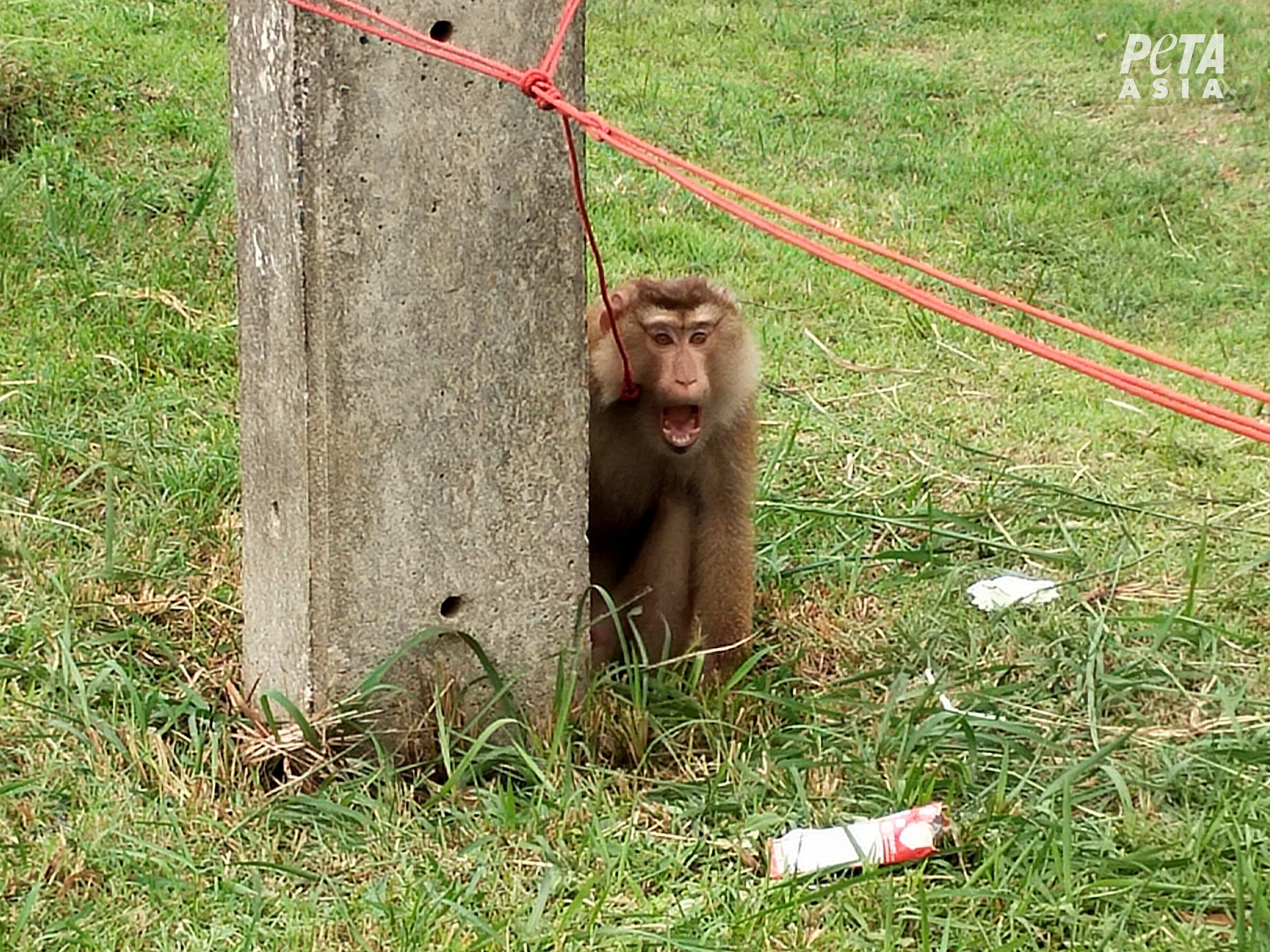
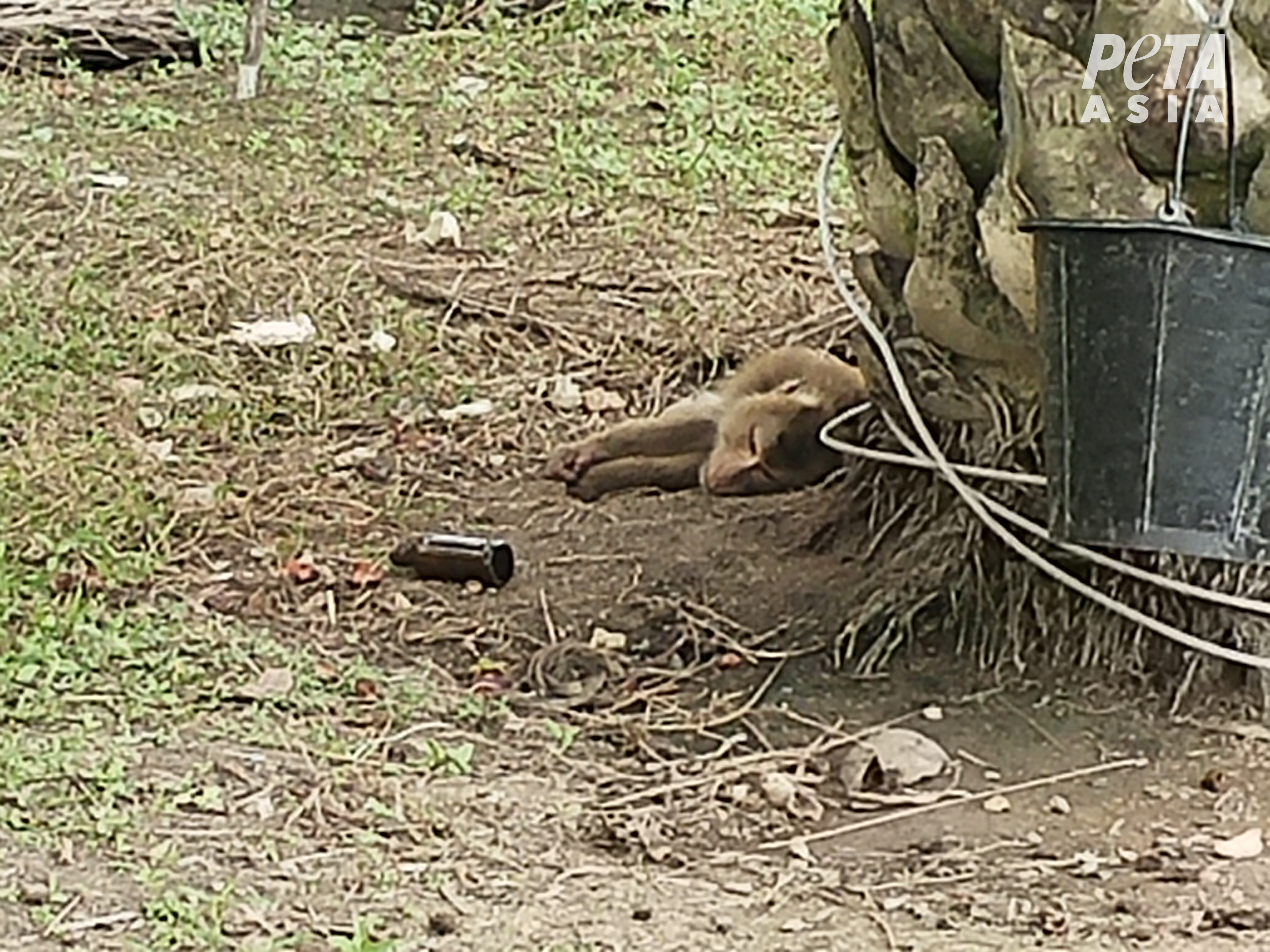
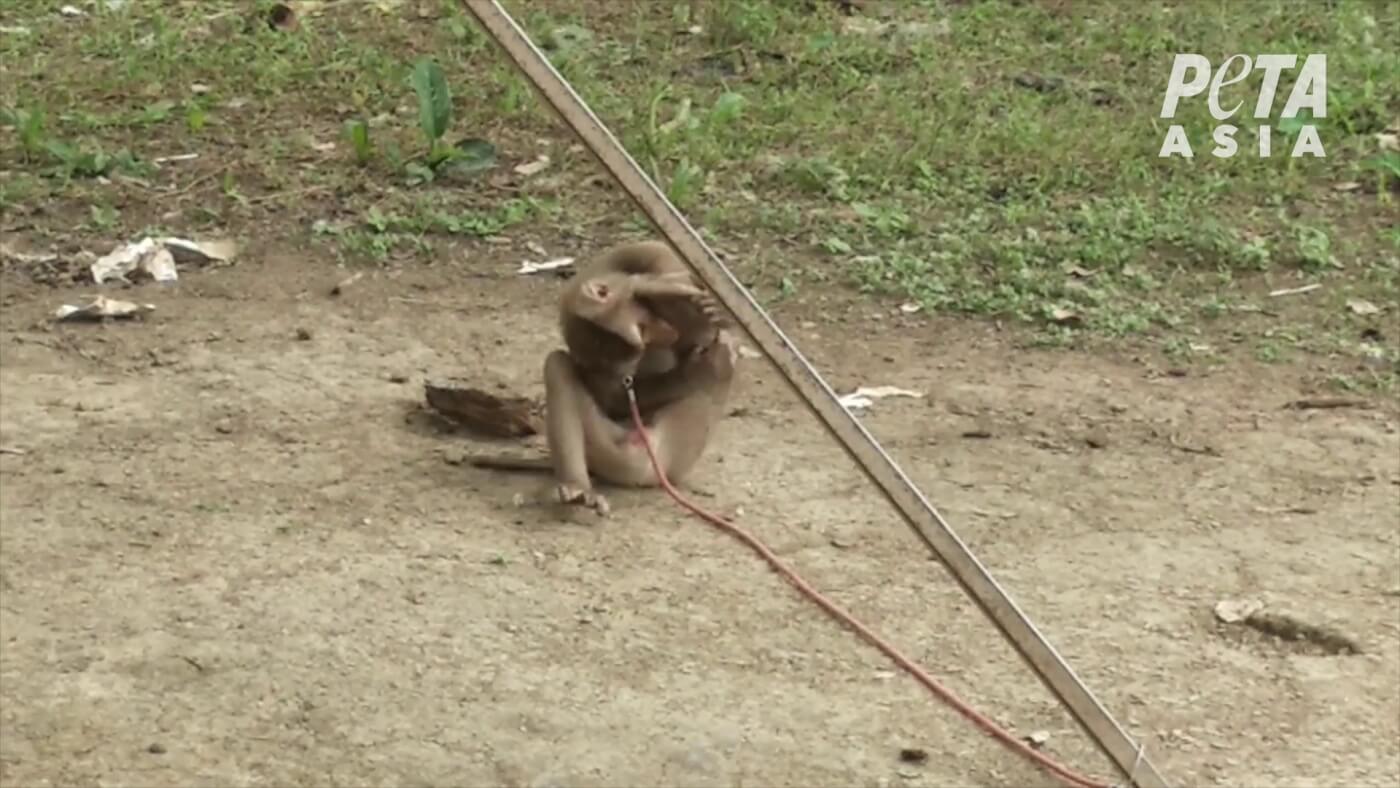
Cruelly Trained and Teeth Pulled Out
The terrified young monkeys are forced to perform frustrating and difficult tasks, such as twisting heavy coconuts until they fall off the trees from a great height. An investigator learned that if monkeys try to defend themselves, their canine teeth may be pulled.
To earn more money off these animals, some trainers also force them to participate in circus-style shows in which they entertain paying visitors by riding bicycles, shooting basketballs, and performing other confusing and demeaning tricks.
An investigator saw monkeys being transported in cramped cages that were barely large enough for them to turn around in and others left in locked cages in the back of a pickup truck, with no shelter from the driving rain. One monkey was seen frantically shaking the cage bars in a vain attempt to escape.
Tethered by the neck with a metal collar, the monkeys are forced to climb up and down trees and collect coconuts.
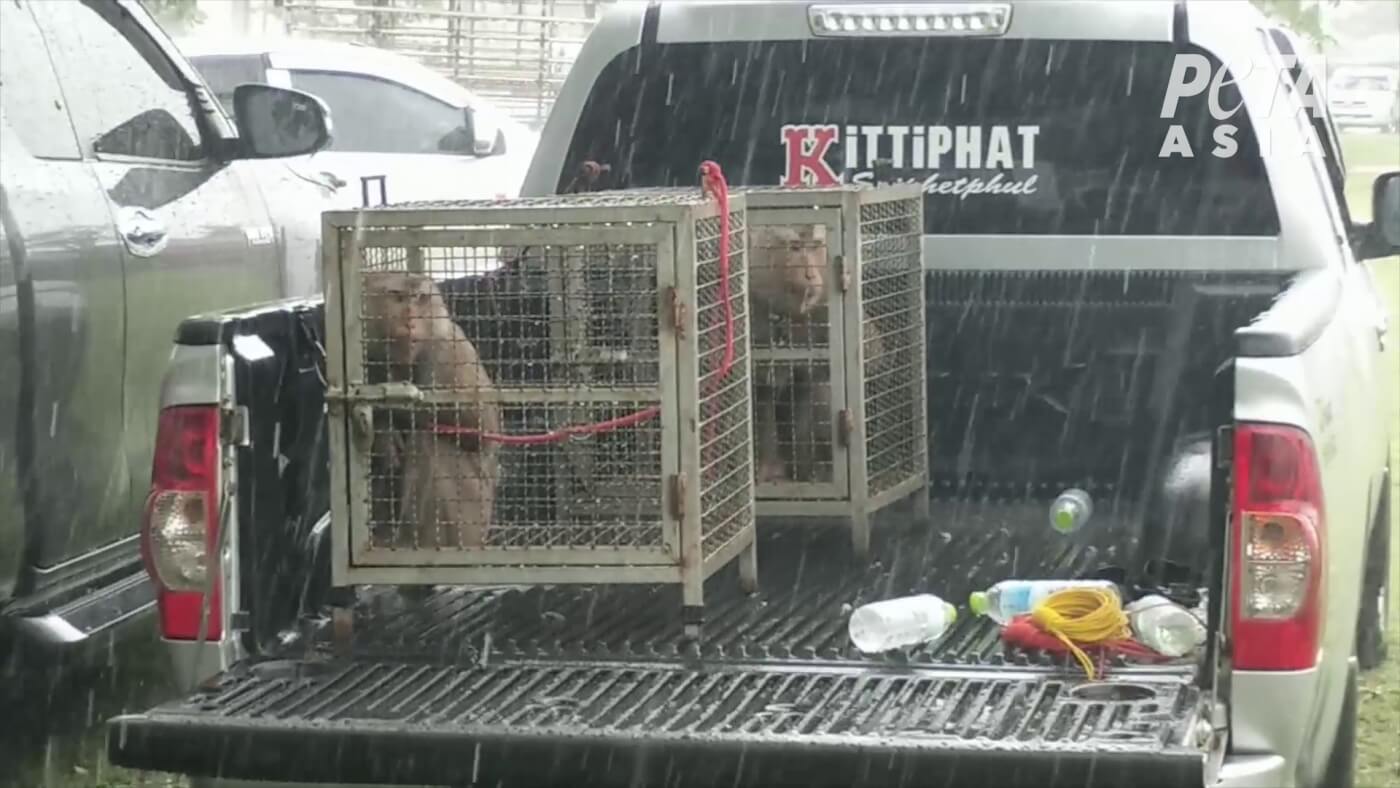
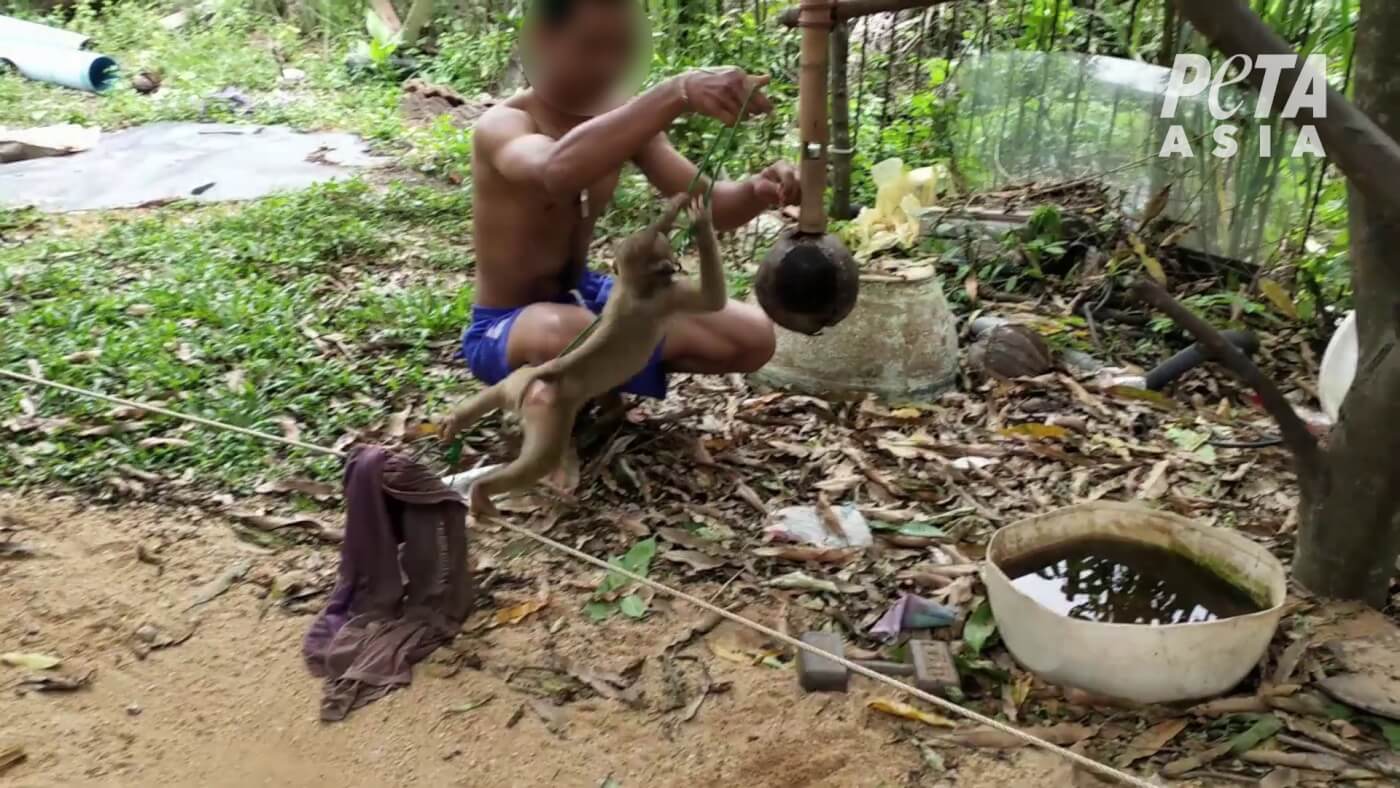
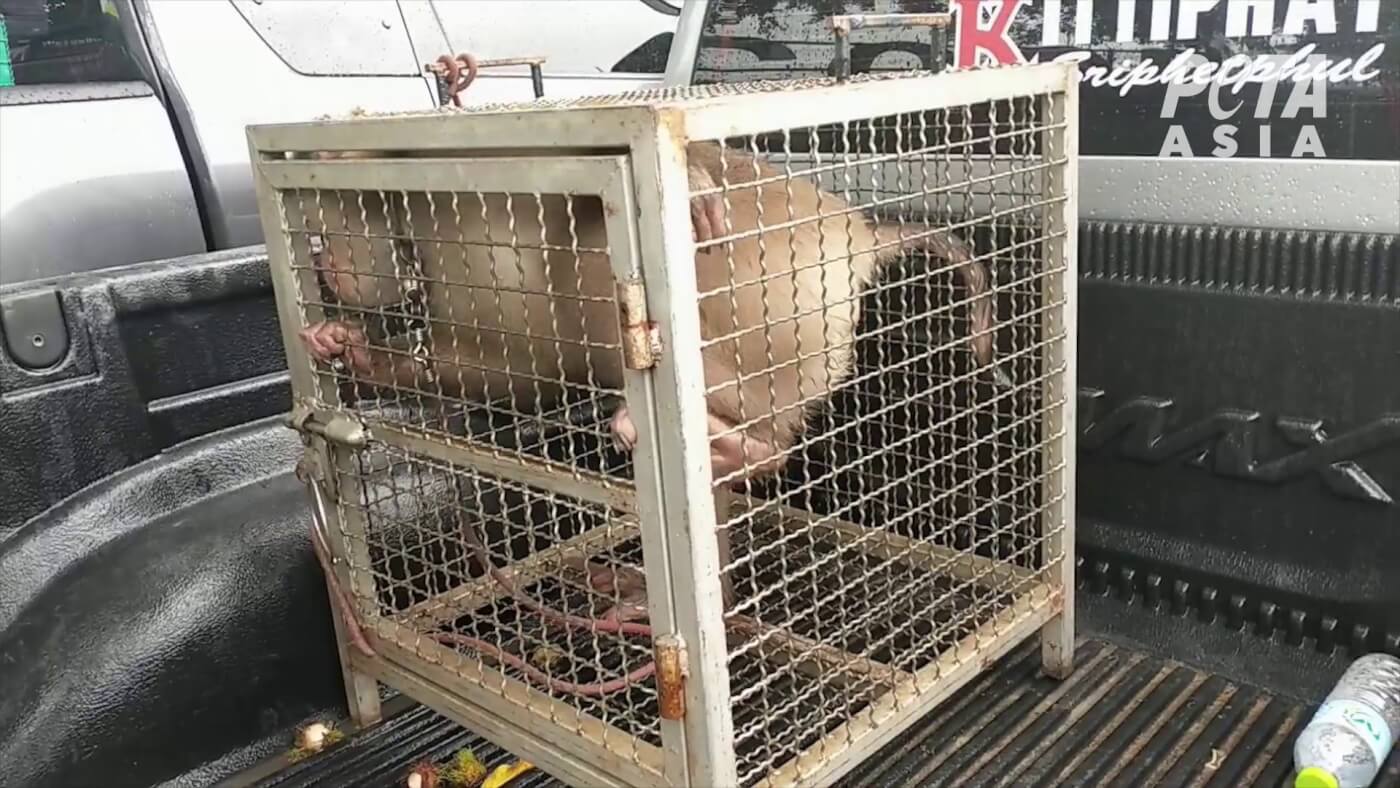
No Tropical Paradise
A PETA Asia investigator was told by a worker at one farm that it supplied coconuts to Chaokoh, which is sold in major stores across the U.S. So if you purchase Chaokoh or coconut milk from Thailand, you may inadvertently be supporting this cruelty.
Other coconut-growing regions—including Brazil, Colombia, and Hawaii—harvest coconuts using humane methods such as tractor-mounted hydraulic elevators, willing human tree-climbers, rope or platform systems, or ladders, or they plant dwarf coconut trees. Studies have shown that these methods are superior to using monkeys, who can’t distinguish between ripe and unripe fruit, and the ripe coconuts get bruised when the monkeys drop them to the ground. Coconut water typically comes from coconuts grown on dwarf trees, including the Nam Hom variety, so harvesting them doesn’t require monkey labor. But that doesn’t necessarily mean that monkeys won’t be used. PETA has confirmed, however, that Harmless Harvest is among the companies that don’t use monkey labor for coconut water.
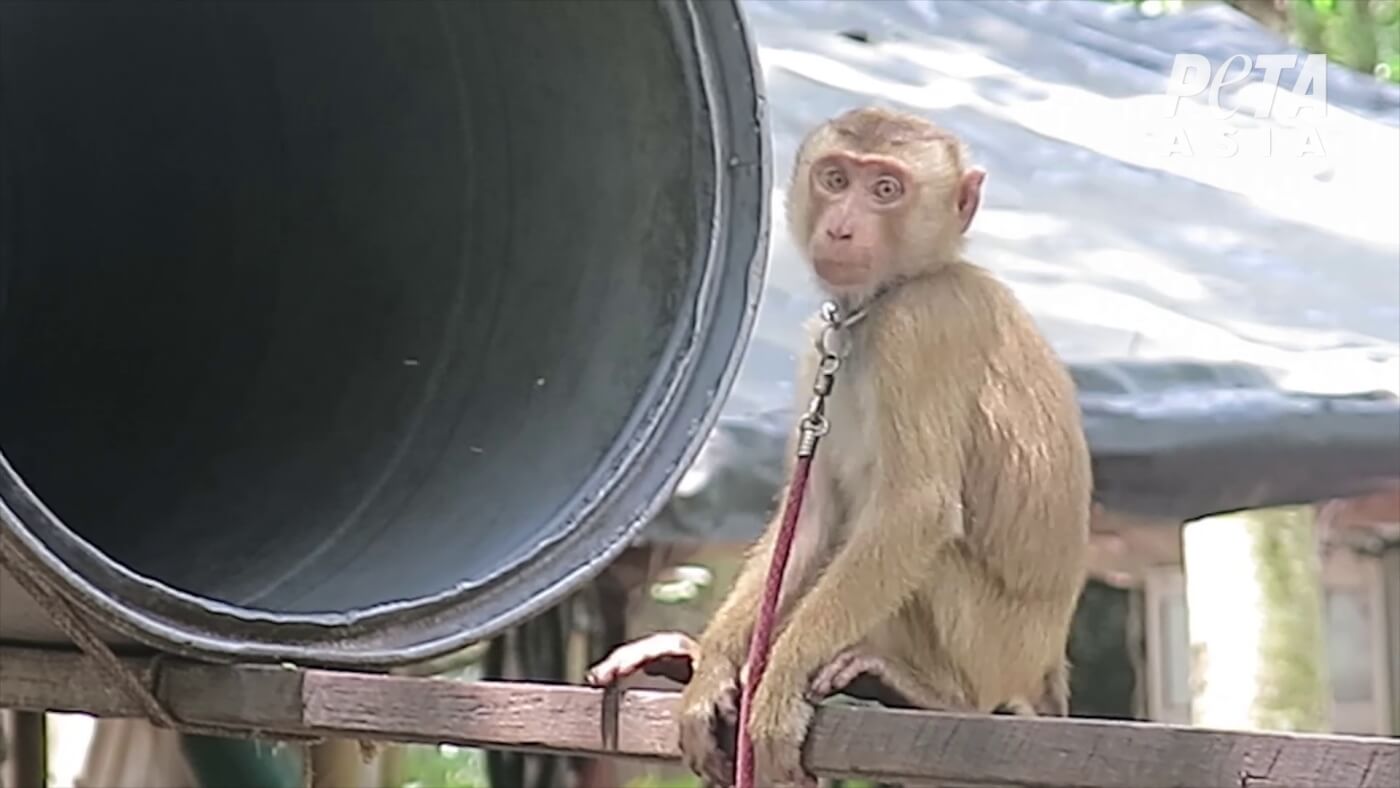
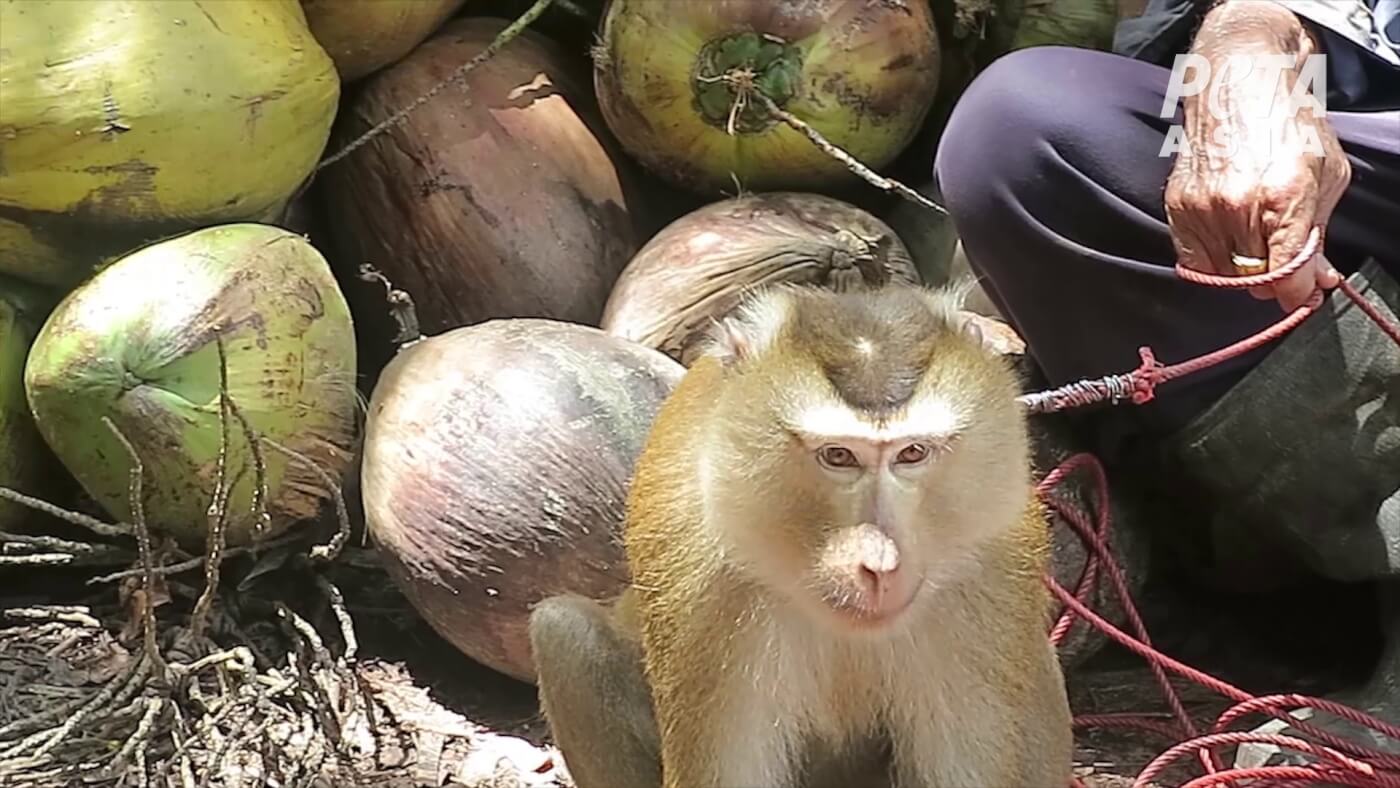
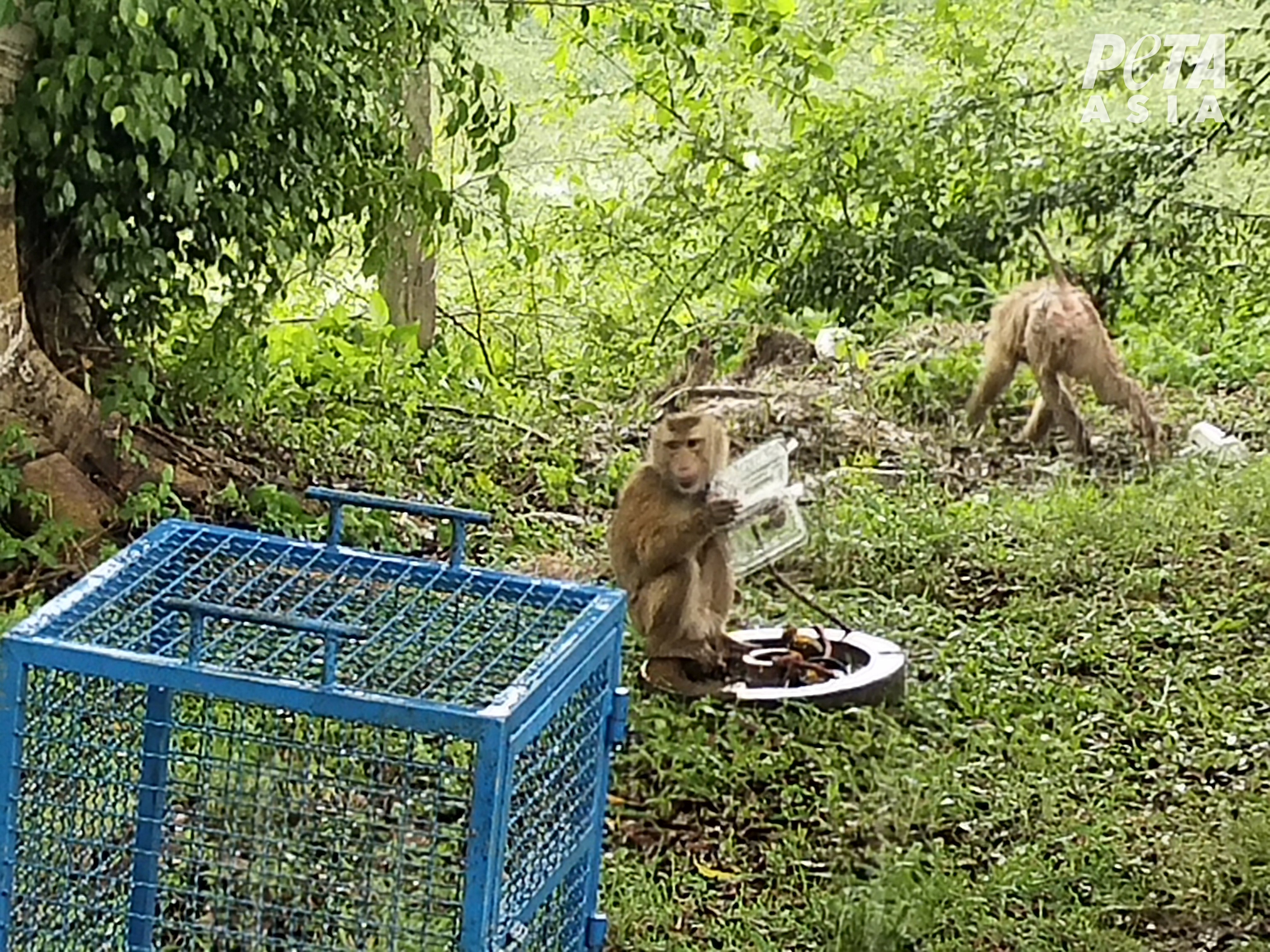
Take Action
Urge the Thai government to shut down all “monkey schools” and ban monkey labor immediately. And until the Thai coconut industry is completely monkey-free, PETA urges consumers not to buy Thai coconut milk unless the brand is on our list at PETA.org/ThaiCoconut.
